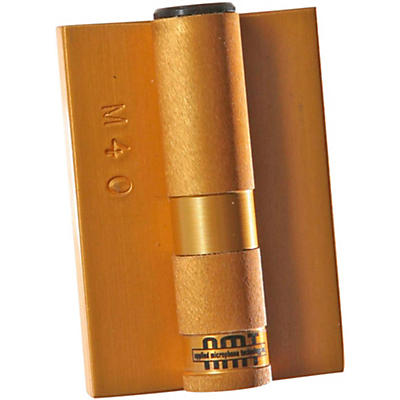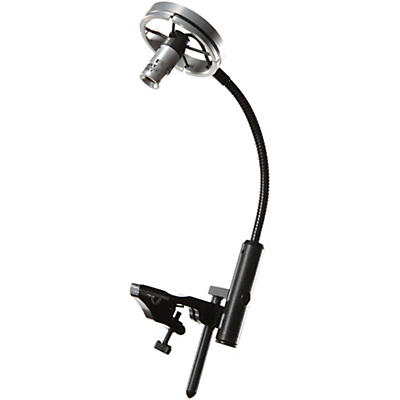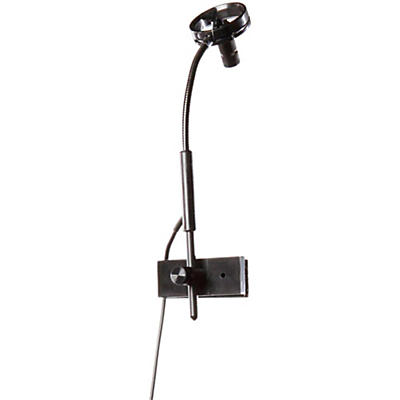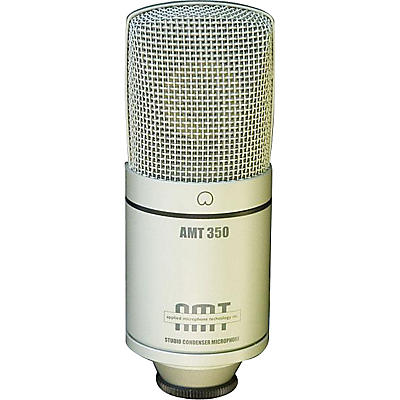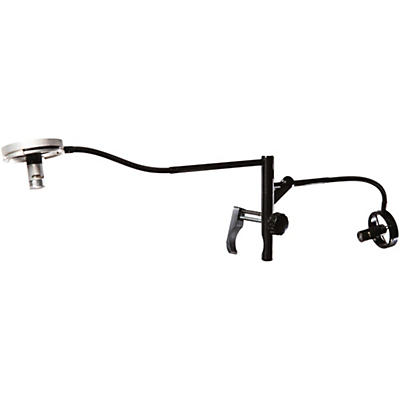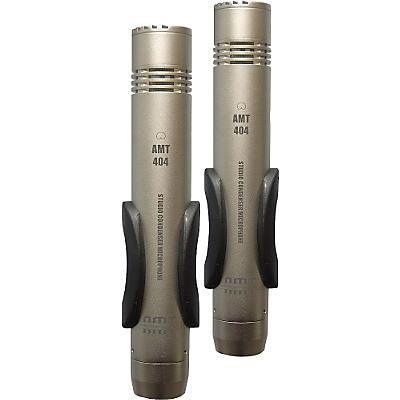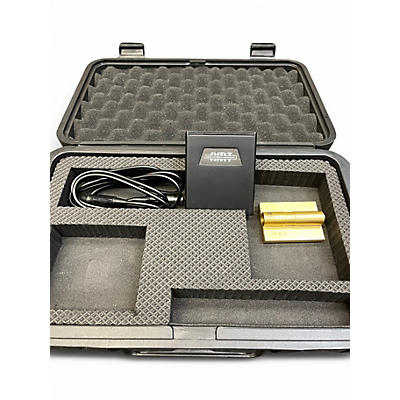Filters
Applied Microphone Technology Microphones
(7 Items)
10% Off $99+ w/ SPRING
SkuInfo [skuId=site1sku270985000000000, productId=site1prod270985, linkUrl=/pro-audio/applied-microphone-technology-amt-m40-acoustic-piano-microphone-system-with-ap40-preamp, imageId=AMT-M40-Acoustic-Piano-Microphone-System-with-AP40-Preamp/270985000000000, displayName=Applied Microphone Technology AMT M40 Acoustic Piano Microphone System with AP40 Preamp, description=The most simple piano microphone solution on the market. At a fraction of the price, the M40 compares to the..., brandName=Applied Microphone Technology, totalReviews=3, overallRating=9, priceVisibility=1, graphicalSticker=10% Off $99+ w/ SPRING, allUsed=false, onsale=false, lowPrice=471.0, highPrice=471.0, startingRestockPrice=null, restockItemCount=0, startingUsedPrice=null, usedItemCount=0, restockLinkURL=null, maxSaving=118.0, maxSavingPercent=20, maxSavingMSRP=589.0, externalInfo={}, productSeoUrl=/pro-audio/applied-microphone-technology-amt-m40-acoustic-piano-microphone-system-with-ap40-preamp, productVisibilityMSRP =1, storeName=null, storeId=null]
Applied Microphone Technology AMT M40 Acoustic Piano...
Product Price
$471.00
10% Off $99+ w/ SPRING
SkuInfo [skuId=site1sku270982000000000, productId=site1prod270982, linkUrl=/pro-audio/applied-microphone-technology-amt-ls-studio-saxophone-microphone-with-ap40-preamp, imageId=AMT-LS-Studio-Saxophone-Microphone-with-AP40-Preamp/270982000000000, displayName=Applied Microphone Technology AMT LS Studio Saxophone Microphone with AP40 Preamp, description=The AMT LS is the ultimate in a woodwind or brass microphone. The system is meant to clip onto any flanged..., brandName=Applied Microphone Technology, totalReviews=0, overallRating=null, priceVisibility=1, graphicalSticker=10% Off $99+ w/ SPRING, allUsed=false, onsale=false, lowPrice=639.0, highPrice=639.0, startingRestockPrice=null, restockItemCount=0, startingUsedPrice=562.32, usedItemCount=1, restockLinkURL=null, maxSaving=160.0, maxSavingPercent=20, maxSavingMSRP=799.0, externalInfo={}, productSeoUrl=/pro-audio/applied-microphone-technology-amt-ls-studio-saxophone-microphone-with-ap40-preamp, productVisibilityMSRP =1, storeName=null, storeId=null]
Applied Microphone Technology AMT LS Studio Saxophone...
Product Price
$639.00
$562.32
10% Off $99+ w/ SPRING
SkuInfo [skuId=site1sku581570000000000, productId=site1prod581570, linkUrl=/pro-audio/applied-microphone-technology-accx-accordion-microphone-with-inline-preamp, imageId=ACCX-Accordion-Microphone-with-Inline-Preamp/581570000000000, displayName=Applied Microphone Technology ACCX Accordion Microphone with Inline Preamp, description=The AMT ACCX Accordion Microphone is an external microphone system that faithfully captures the sounds of..., brandName=Applied Microphone Technology, totalReviews=0, overallRating=null, priceVisibility=1, graphicalSticker=10% Off $99+ w/ SPRING, allUsed=false, onsale=false, lowPrice=343.0, highPrice=343.0, startingRestockPrice=null, restockItemCount=0, startingUsedPrice=null, usedItemCount=0, restockLinkURL=null, maxSaving=86.0, maxSavingPercent=20, maxSavingMSRP=429.0, externalInfo={}, productSeoUrl=/pro-audio/applied-microphone-technology-accx-accordion-microphone-with-inline-preamp, productVisibilityMSRP =1, storeName=null, storeId=null]
Applied Microphone Technology ACCX Accordion Microphone...
Product Price
$343.00
10% Off $99+ w/ SPRING
SkuInfo [skuId=site1sku270971000000000, productId=site1prod270971, linkUrl=/pro-audio/applied-microphone-technology-amt-350-large-diaphragm-condenser-microphone, imageId=AMT-350-Large-Diaphragm-Condenser-Microphone/270971000000000, displayName=Applied Microphone Technology AMT 350 Large Diaphragm Condenser Microphone, description=The AMT 350 large diaphragm studio microphone is designed to record vocals and instruments on classic analog..., brandName=Applied Microphone Technology, totalReviews=0, overallRating=null, priceVisibility=1, graphicalSticker=10% Off $99+ w/ SPRING, allUsed=false, onsale=false, lowPrice=279.0, highPrice=279.0, startingRestockPrice=null, restockItemCount=0, startingUsedPrice=null, usedItemCount=0, restockLinkURL=null, maxSaving=70.0, maxSavingPercent=20, maxSavingMSRP=349.0, externalInfo={}, productSeoUrl=/pro-audio/applied-microphone-technology-amt-350-large-diaphragm-condenser-microphone, productVisibilityMSRP =1, storeName=null, storeId=null]
Applied Microphone Technology AMT 350 Large Diaphragm...
Product Price
$279.00
10% Off $99+ w/ SPRING
SkuInfo [skuId=site1sku271154000000000, productId=site1prod271154, linkUrl=/pro-audio/applied-microphone-technology-amt-ws-studio-double-clarinet-oboe-microphone-with-ap40-preamp, imageId=AMT-WS-Studio-Double-Clarinet-Oboe-Microphone-With-AP40-Preamp/271154000000000, displayName=Applied Microphone Technology AMT WS Studio Double Clarinet/Oboe Microphone With AP40 Preamp, description=Ultra-miniature, low profile double microphone system specifically designed for clarinet,oboe,alto flute and..., brandName=Applied Microphone Technology, totalReviews=null, overallRating=null, priceVisibility=1, graphicalSticker=10% Off $99+ w/ SPRING, allUsed=false, onsale=false, lowPrice=727.0, highPrice=727.0, startingRestockPrice=null, restockItemCount=0, startingUsedPrice=null, usedItemCount=0, restockLinkURL=null, maxSaving=182.0, maxSavingPercent=20, maxSavingMSRP=909.0, externalInfo={}, productSeoUrl=/pro-audio/applied-microphone-technology-amt-ws-studio-double-clarinet-oboe-microphone-with-ap40-preamp, productVisibilityMSRP =1, storeName=null, storeId=null]
Applied Microphone Technology AMT WS Studio Double...
Product Price
$727.00
10% Off $99+ w/ SPRING
SkuInfo [skuId=site1sku270972000000000, productId=site1prod270972, linkUrl=/pro-audio/applied-microphone-technology-amt-404-small-diaphragm-condenser-microphone-pair, imageId=AMT-404-Small-Diaphragm-Condenser-Microphone-Pair/270972000000000, displayName=Applied Microphone Technology AMT 404 Small Diaphragm Condenser Microphone Pair, description=The AMT 404 Small Diaphragm Condenser Microphone Pair have a cardioid polar pattern and are designed for live..., brandName=Applied Microphone Technology, totalReviews=null, overallRating=null, priceVisibility=1, graphicalSticker=10% Off $99+ w/ SPRING, allUsed=false, onsale=false, lowPrice=239.0, highPrice=239.0, startingRestockPrice=null, restockItemCount=0, startingUsedPrice=null, usedItemCount=0, restockLinkURL=null, maxSaving=60.0, maxSavingPercent=20, maxSavingMSRP=299.0, externalInfo={}, productSeoUrl=/pro-audio/applied-microphone-technology-amt-404-small-diaphragm-condenser-microphone-pair, productVisibilityMSRP =1, storeName=null, storeId=null]
Applied Microphone Technology AMT 404 Small Diaphragm...
Product Price
$239.00
SkuInfo [skuId=site1sku120893450, productId=site1prod120893450, linkUrl=/pro-audio/used-applied-microphone-technology-used-applied-microphone-technology-m60-condenser-microphone/120893450, imageId=Used-Applied-Microphone-Technology-M60-Condenser-Microphone/000000120893450, displayName=Used Applied Microphone Technology M60 Condenser Microphone, description=null, brandName=Applied Microphone Technology, totalReviews=null, overallRating=null, priceVisibility=1, graphicalSticker=null, allUsed=false, onsale=false, lowPrice=329.99, highPrice=329.99, startingRestockPrice=null, restockItemCount=0, startingUsedPrice=null, usedItemCount=0, restockLinkURL=null, maxSaving=null, maxSavingPercent=null, maxSavingMSRP=null, externalInfo={}, productSeoUrl=/pro-audio/used-applied-microphone-technology-used-applied-microphone-technology-m60-condenser-microphone, productVisibilityMSRP =null, storeName=null, storeId=null]
Used Applied Microphone Technology M60 Condenser Microphone
Product Price
$329.99
Excellent Condition
The thinking behind Applied Microphone Technology is simple: that in order to get the best performance, audio equipment should be designed specifically for its intended use. The result is a difference that you'll hear in the quality of recordings made with AMT microphones. Since they're purpose-built for particular instruments, each one does an exceptional job of capturing that instrument's unique sound, giving you recordings that convey the full emotion of a skilled performance.
A great example would be the soulful sounds of Stevie Wonder, who uses the AMT HR2 microphone with his harmonica. That instrument's cousin, the accordion, also has a mic in AMT's lineup: the ACCX. For the acoustic bass, AMT offers two different microphones: the side-mounted SP25B and the S25B, which is available with either tailpiece or side mounting. Christian McBride, a world-class bassist who has played with artists like Sting, McCoy
Show More




































































































































